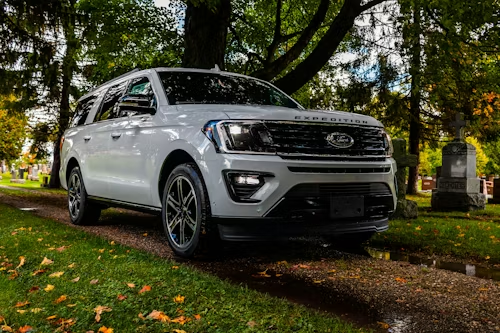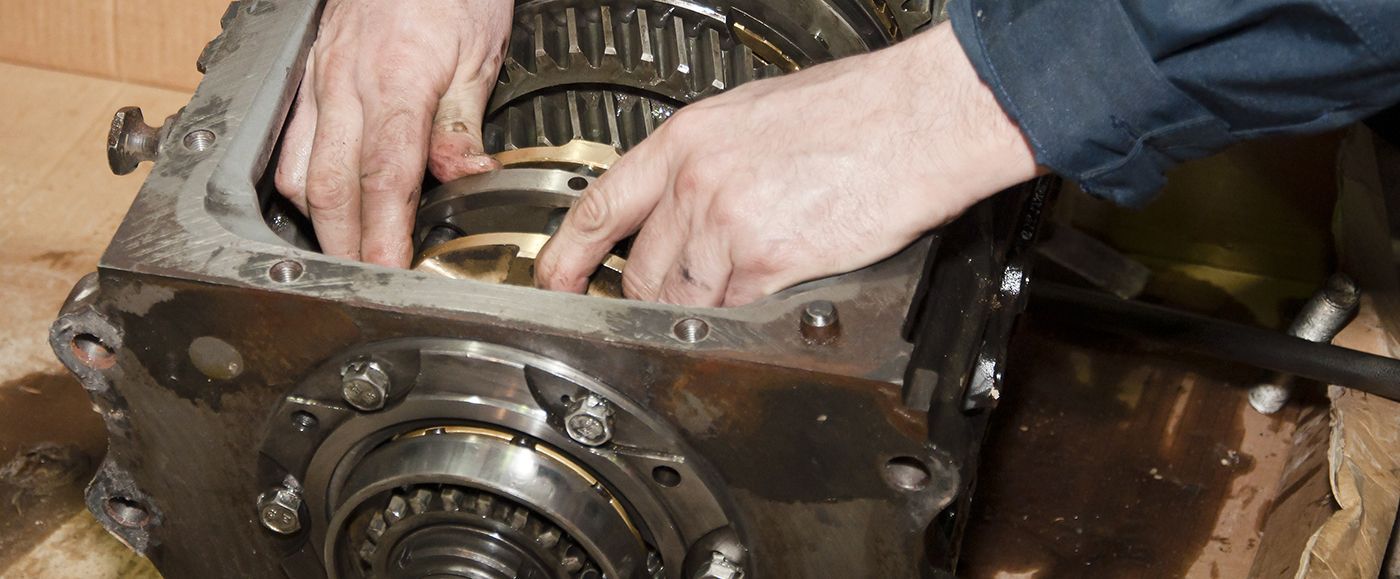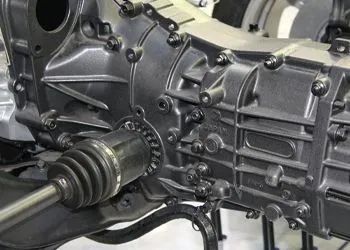Waterloo Transmissions Blog
Engaging blog posts covering Transmission Rebuild, Replace, Repair, Maintenance, and Differential, Drivetrain, & Clutch Services.

A healthy automatic transmission enables smooth gear changes, efficient power delivery, and a comfortable driving experience. But when transmission problems arise, they can be confusing and stressful for drivers who may not be familiar with how these systems work. At Waterloo Transmissions, we’re happy to answer any of your questions about automatic transmission repair in the greater Akron, OH area. What Are the Signs of Transmission Trouble? Warning signs often include slipping gears, delayed shifting, rough or jerky gear changes, and unusual noises such as whining. You might also notice leaking transmission fluid or a burning smell. If your vehicle hesitates when accelerating or struggles to stay in gear, it’s important to have it inspected as soon as possible. What Causes Automatic Transmission Problems? Automatic transmission issues can develop for several reasons. Low or contaminated transmission fluid is a leading cause, as fluid is essential for lubrication, cooling, and hydraulic pressure. Overheating, worn internal components, and neglected maintenance can also lead to serious damage. Addressing small problems early can help prevent more extensive repairs later. Can Transmission Problems Usually Be Fixed Without Replacement? Some drivers worry that any transmission issue means a full replacement. While severe damage may require rebuilding or replacing the transmission, many problems can be resolved with less extensive repairs. Replacing worn seals, fixing leaks, or repairing specific components can often restore proper function. A professional diagnostic inspection will determine the most cost-effective solution. How Long Does Transmission Repair Take? Repair timelines vary depending on the severity of the issue. Some repairs, such as fixing a fluid leak, may potentially be completed within a day. More complex jobs, including transmission rebuilds, can take several days due to the labor involved and the need for specialized parts. The shop can provide a clear estimate after diagnosing the problem. How Can You Prevent Transmission Problems? Preventive maintenance is key to avoiding costly transmission repairs. Regular fluid checks and changes help keep internal components lubricated and cool. Following the manufacturer’s recommended service schedule and avoiding aggressive driving habits can also extend transmission life. If you notice any unusual performance issues, addressing them quickly can often prevent further damage. Where Can I Get Expert Automatic Transmission Repair in Akron, OH? For expert transmission repair in Akron , Canton, and Dover, OH, contact Waterloo Transmissions. Our nearby transmission mechanics can thoroughly address your vehicle’s transmission needs!

Transmission fluid plays a vital role in keeping your vehicle shifting smoothly and protecting internal components from excessive heat and wear. Over time, however, transmission fluid can become contaminated by dirt, metal particles, and moisture. When this happens, the fluid loses its ability to properly lubricate and cool the transmission. Recognizing the warning signs of contaminated transmission fluid early can help you avoid serious damage and costly repairs. At Waterloo Transmissions, we can expertly handle issues related to transmission fluid. Here’s a look at four signs that your transmission fluid is contaminated. Dark/Discolored Transmission Fluid Healthy transmission fluid is typically bright red and has a clean appearance. If the fluid appears dark brown, black, or cloudy, contamination is likely present. Discoloration often indicates excessive heat, debris buildup, or fluid breakdown. Checking the fluid color regularly can provide an early warning that your transmission needs service. Burnt Odor A strong burnt smell coming from the transmission fluid is another common sign of contamination. This odor usually means the fluid has been overheated and is no longer protecting internal components effectively. Burnt fluid can lead to increased friction, accelerated wear, and potential failure if it isn’t addressed promptly. Delayed/Rough Shifting Contaminated transmission fluid can interfere with proper hydraulic pressure inside the transmission. As a result, you may notice delayed engagement when shifting into gear or rough, jerky shifts while driving. These symptoms indicate that the fluid is no longer providing the smooth lubrication and pressure needed for precise gear changes. Slipping Gears or Loss of Power When transmission fluid is contaminated, it may not maintain consistent pressure, causing gears to slip unexpectedly. You might feel the engine rev without a corresponding increase in speed or experience a sudden loss of power while driving. Gear slipping is a serious warning sign that should be inspected immediately to prevent further damage. Transmission Service in Akron, OH For transmission service in Akron , Canton, and Dover, OH, contact Waterloo Transmissions. Our nearby transmission mechanics can expertly address your vehicle’s transmission needs in Akron and the surrounding area!

Your vehicle’s transmission plays a crucial role in keeping your car moving smoothly, and when something goes wrong, the symptoms often start small before becoming serious. Recognizing early warning signs can help you avoid costlier repairs. At Waterloo Transmissions, we can expertly diagnose and repair transmission problems. Here are four common signs that your transmission is in trouble. Unusual Noises While Shifting One of the first signs of transmission trouble often comes in the form of strange noises. If you start hearing grinding, whining, or clunking when your vehicle shifts gears, it may indicate worn internal components or low transmission fluid. These noises can happen during acceleration, deceleration, or even when the car is in neutral. Even if the sounds seem mild, they signal that something isn’t operating correctly. Ignoring these noises can lead to more severe internal damage, so it’s best to have them checked promptly. Slipping Gears While Driving A slipping transmission can be both frustrating and dangerous. If your vehicle seems to change gears unexpectedly or has trouble staying in gear, it’s a clear sign something is wrong. You may notice the engine revving higher than usual without a corresponding increase in speed, or the car may feel like it jolts in and out of gear. This type of issue often points to low fluid levels or internal wear. Because slipping can affect your ability to accelerate or maintain speed, it’s important to address this warning sign right away. Delayed or Rough Gear Engagement When you shift from park to drive or reverse, the transition should feel smooth and immediate. If there’s a noticeable delay or rough jump when engaging gears, your transmission may be struggling to circulate fluid or build enough pressure. This problem can stem from a failing pump, contaminated transmission fluid, or internal damage. Any delay or harsh engagement is a sign that your transmission is no longer operating efficiently and needs professional attention. Leaking Transmission Fluid If you spot reddish to brownish fluid under your vehicle, you may be dealing with a transmission fluid leak. This fluid is essential for cooling, lubricating, and powering your transmission. A leak can quickly lead to low fluid levels, which can cause severe internal damage if not corrected. Leaks often come from damaged seals, gaskets, or lines, and they should always be treated as urgent. Transmission Repair in Akron, OH For top-quality transmission repair in Akron, Canton, and Dover, OH , contact Waterloo Transmissions. Our local transmission mechanics can expertly address your vehicle’s transmission needs!

Your vehicle’s transmission is responsible for transferring power from the engine to the wheels and enabling smooth gear shifts while driving. When transmission problems arise, ignoring them can quickly turn a minor issue into a major repair. Acting fast when you notice warning signs—such as slipping gears, delayed shifting, or fluid leaks—can make all the difference in preserving your car’s performance and avoiding costly damage. At Waterloo Transmissions, we provide expert transmission repair in the greater Akron area. Here are four reasons why it’s essential to address signs of transmission trouble ASAP. Avoid Costly Repairs or Replacements Transmission repairs can be expensive, and full replacements are among the most costly repairs a car can require. However, catching and fixing problems early—such as fluid leaks or worn-out seals—can often prevent the need for a rebuild or replacement. Regular inspections and prompt attention to any warning signs can keep repair costs minimal and your transmission operating efficiently for years to come. Promotes Safe and Reliable Driving A faulty transmission can make your car unpredictable and unsafe to drive. Slipping gears or hesitation when accelerating can cause your vehicle to lose power at critical moments, especially when merging onto highways or crossing intersections. Addressing transmission trouble promptly helps maintain the vehicle’s stability, ensuring smoother gear transitions and consistent power delivery. Safe driving depends on a responsive, reliable transmission that you can count on in all conditions. Protects the Transmission Fluid System Transmission fluid plays a vital role in lubricating gears, cooling internal parts, and maintaining hydraulic pressure. When this fluid becomes dirty or starts leaking, the system’s ability to function properly is compromised. Low or contaminated fluid can quickly lead to overheating and internal wear. Taking care of transmission issues early helps protect the fluid system, preventing severe internal damage that could otherwise require a full rebuild. Maintains Vehicle Longevity and Value A well-maintained transmission significantly extends the life of your vehicle. When you stay proactive about addressing transmission trouble, you’re preserving the overall health of the drivetrain and keeping your car running efficiently. Vehicles with strong, well-functioning transmissions also hold greater resale value, as potential buyers know they’re less likely to face major mechanical problems down the road. Transmission Repair in Akron, OH For top-quality transmission repair in Akron , Canton, and Dover, OH, contact Waterloo Transmissions. Our local transmission mechanics can expertly address your vehicle’s transmission needs!

Your vehicle’s transmission is one of its most critical components, responsible for transferring power from the engine to the wheels. Because of its importance and complexity, transmission repairs can become quite extensive. The good news is that with proper care and attention, you can help extend the life of your transmission and avoid major headaches down the road. Here are four tips to help keep your transmission in great shape for years to come. Stay Current with Fluid Changes Transmission fluid is the lifeblood of the system, keeping it cool and lubricated. Over time, fluid breaks down, collects debris, and loses its effectiveness. Regular fluid checks and timely changes are essential for maintaining smooth operation and preventing internal damage. If the fluid looks dark or has a burnt smell, it’s time for service. Keeping the fluid fresh helps reduce wear and enables your transmission to operate at its best. Avoid Overloading Your Vehicle Every vehicle has its weight limits. Consistently carrying more than your vehicle is designed for can lead to overheating and premature wear of transmission components. Whether you’re towing a trailer or hauling heavy cargo, staying within the recommended limits will go a long way toward protecting your transmission. Don’t Shift Between Drive and Reverse While Moving Shifting abruptly from drive to reverse, or vice versa, while the vehicle is still rolling is a common but damaging habit. This action forces the transmission to stop the vehicle’s momentum suddenly, which puts excessive strain on the gears and internal parts. Always come to a complete stop before changing gears to prevent unnecessary wear. Get to the Shop if You Notice Signs of Trouble Transmissions often give warning signs before they fail completely. Hesitation when shifting, slipping gears, unusual noises, or fluid leaks are all red flags that something may be wrong. Ignoring these issues can turn a minor repair into a major replacement. Getting to the shop at the first sign of trouble gives you the best chance of addressing problems early and keeping costs manageable. Transmission Service in Akron, OH For top-quality transmission service in Akron, Canton, and Dover, OH, contact Waterloo Transmissions. Our nearby transmission mechanics can expertly address your vehicle’s transmission needs in Akron and the surrounding area!



